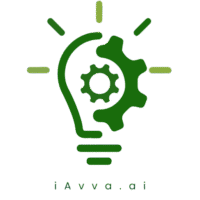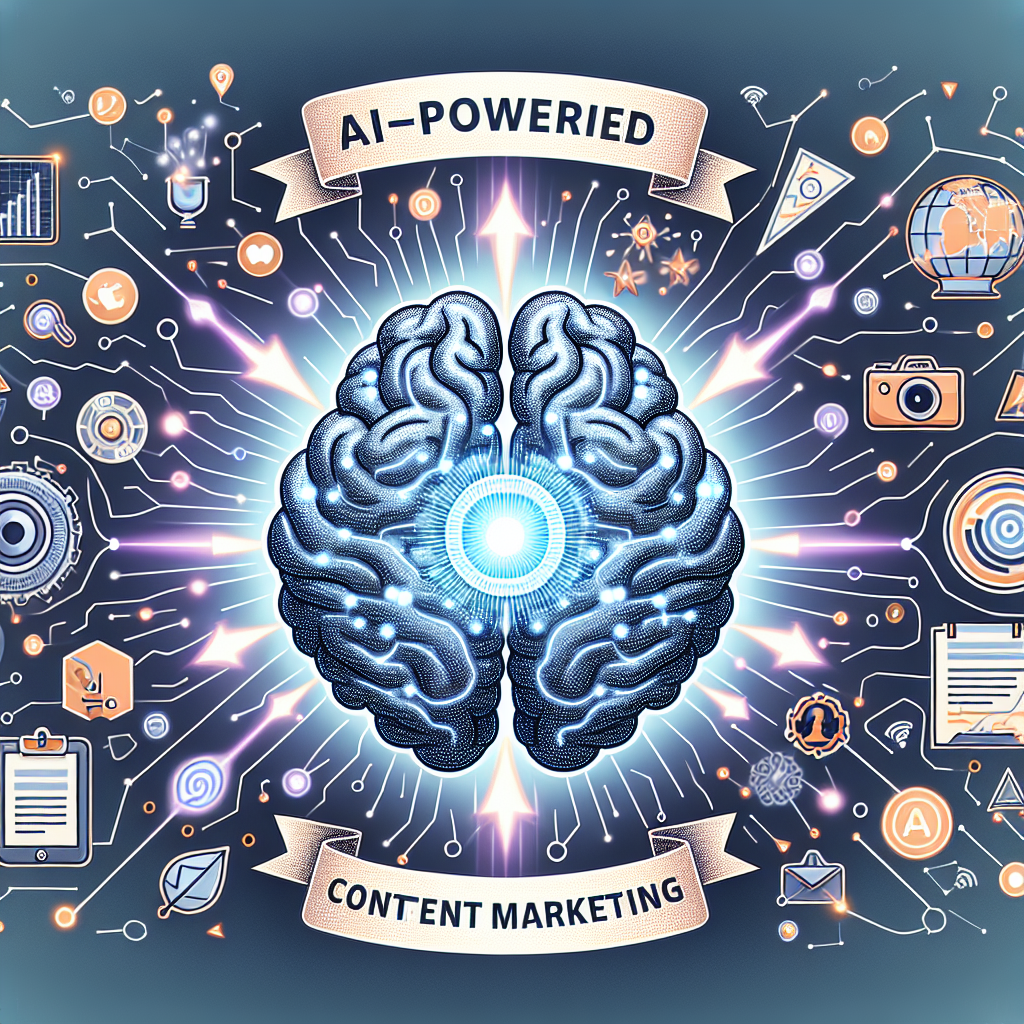Artificial Intelligence (AI) is no longer a futuristic concept; it has become an integral part of modern business strategy. The role of AI in your organization transcends mere automation; it is about enhancing decision-making, improving customer experiences, and driving innovation. By leveraging AI, businesses can analyze vast amounts of data at unprecedented speeds, uncovering insights that were previously hidden.
This capability allows organizations to make informed decisions that can lead to increased efficiency and profitability. Imagine a world where your business can predict customer behavior, optimize supply chains, and personalize marketing efforts—all powered by AI. Moreover, AI is not just about efficiency; it’s about creating a competitive edge.
Companies that harness AI effectively can differentiate themselves in crowded markets. For instance, AI-driven analytics can help identify emerging trends before they become mainstream, allowing businesses to pivot and adapt their strategies accordingly. In this rapidly evolving landscape, understanding the role of AI is crucial for any organization aiming to thrive in the digital age.
It’s not merely a tool; it’s a catalyst for transformation that can redefine how businesses operate and engage with their customers. Try <a href="https://iavva.my-ai.
coach”>iAvva AI coach app for free.
Key Takeaways
- AI can play a crucial role in streamlining processes, improving decision-making, and enhancing customer experiences in your business.
- AI can address business challenges such as repetitive tasks, data analysis, customer service, and predictive maintenance, among others.
- Assess your organization’s readiness for AI implementation by evaluating your data infrastructure, technological capabilities, and organizational culture.
- Set clear goals and objectives for AI integration, such as improving operational efficiency, increasing revenue, or enhancing customer satisfaction.
- Evaluate the potential impact of AI on your business in terms of cost savings, revenue growth, and competitive advantage.
Identifying Business Challenges that AI Can Address
Every organization faces unique challenges that can hinder growth and efficiency. Identifying these challenges is the first step toward leveraging AI effectively. Common issues include inefficient processes, poor customer engagement, and data overload.
For instance, many businesses struggle with managing customer inquiries across multiple channels, leading to inconsistent service and frustrated customers. AI can streamline these interactions through chatbots and virtual assistants, providing instant responses and freeing up human agents for more complex tasks. Additionally, businesses often grapple with making sense of the vast amounts of data they collect.
This data can be a goldmine for insights, but without the right tools, it can become overwhelming. AI can sift through this data, identifying patterns and trends that inform strategic decisions. By pinpointing specific challenges—be it operational inefficiencies or customer dissatisfaction—organizations can tailor their AI initiatives to address these pain points directly.
This targeted approach not only maximizes the impact of AI but also ensures that resources are allocated effectively.
Assessing Your Organization’s Readiness for AI Implementation
Before diving into AI implementation, it’s essential to assess your organization’s readiness. This involves evaluating your current technological infrastructure, data quality, and organizational culture. A robust IT framework is crucial for supporting AI applications; without it, even the most sophisticated algorithms will falter.
Additionally, the quality of your data plays a pivotal role in the success of AI initiatives. If your data is inconsistent or incomplete, the insights generated will be flawed, leading to misguided decisions. Cultural readiness is equally important.
An organization that fosters innovation and embraces change is more likely to succeed in its AI endeavors.
Employees should be encouraged to adopt a mindset of continuous learning and adaptation. This cultural shift may require training programs to upskill staff and promote collaboration between IT and business units.
By thoroughly assessing readiness across these dimensions, organizations can identify gaps and take proactive steps to ensure a smooth transition into the world of AI.
Setting Clear Goals and Objectives for AI Integration
| Metrics | Targets | Progress |
|---|---|---|
| Number of clear AI integration goals defined | 100% | 80% |
| Alignment of AI objectives with business goals | 100% | 90% |
| Percentage of stakeholders involved in goal setting | 100% | 75% |
Once readiness has been assessed, the next step is to set clear goals and objectives for AI integration. These goals should align with your overall business strategy and address the specific challenges identified earlier. For example, if customer engagement is a primary concern, an objective might be to implement an AI-driven customer service solution that reduces response times by 50% within six months.
Clear objectives provide a roadmap for implementation and help measure success. Moreover, setting measurable goals allows organizations to track progress and make necessary adjustments along the way. It’s essential to involve key stakeholders in this process to ensure buy-in and alignment across departments.
By establishing clear goals and objectives, organizations can create a focused approach to AI integration that drives tangible results and fosters a culture of accountability.
Evaluating the Potential Impact of AI on Your Business
The potential impact of AI on your business can be profound, but it requires careful evaluation. Organizations must consider both short-term benefits and long-term implications when assessing how AI will transform their operations. For instance, implementing AI-driven analytics may lead to immediate improvements in decision-making speed and accuracy, but it could also necessitate changes in workforce dynamics as roles evolve.
Additionally, businesses should evaluate how AI will affect customer relationships. While automation can enhance efficiency, it’s crucial to maintain a human touch in customer interactions. Striking the right balance between technology and personal engagement will be key to ensuring customer satisfaction and loyalty.
By thoroughly evaluating the potential impact of AI across various dimensions—operational efficiency, customer experience, and workforce dynamics—organizations can develop a comprehensive understanding of how to leverage this technology effectively.
Choosing the Right AI Technologies and Tools
With a clear understanding of goals and potential impacts, organizations must now choose the right AI technologies and tools to support their initiatives. The landscape of AI solutions is vast, ranging from machine learning platforms to natural language processing tools. Selecting the appropriate technology depends on your specific needs and objectives.
For example, if your goal is to enhance customer service through chatbots, investing in natural language processing capabilities will be essential. It’s also important to consider scalability when choosing AI tools. As your organization grows and evolves, your technology should be able to adapt accordingly.
Opting for cloud-based solutions can provide the flexibility needed to scale operations without significant upfront investments in infrastructure. Additionally, organizations should evaluate vendor support and community resources when selecting tools; robust support networks can significantly ease the implementation process.
Developing a Data Strategy to Support AI Implementation
A successful AI implementation hinges on a solid data strategy. Organizations must prioritize data collection, storage, and management practices to ensure they have access to high-quality data for training their AI models. This involves establishing protocols for data governance, ensuring compliance with regulations such as GDPR or CCPA, and implementing robust security measures to protect sensitive information.
Furthermore, organizations should consider how they will integrate data from various sources—both internal and external—to create a comprehensive dataset for analysis. This may involve investing in data integration tools or platforms that facilitate seamless data flow across departments. By developing a strategic approach to data management, organizations can lay a strong foundation for their AI initiatives, enabling them to derive meaningful insights that drive business success.
Building a Team with the Right Skills and Expertise
The success of any AI initiative relies heavily on the people behind it. Building a team with the right skills and expertise is crucial for navigating the complexities of AI implementation. This team should include data scientists who can develop algorithms, engineers who can integrate these solutions into existing systems, and business analysts who understand how to translate insights into actionable strategies.
Moreover, fostering a culture of collaboration between technical teams and business units is essential for maximizing the impact of AI initiatives. Encouraging cross-functional teams can lead to innovative solutions that address real business challenges while ensuring that all perspectives are considered in the decision-making process. Investing in training programs to upskill existing employees can also help bridge any skill gaps within your organization.
Creating a Plan for AI Implementation and Integration
With a skilled team in place, organizations must create a detailed plan for AI implementation and integration. This plan should outline specific timelines, milestones, and responsibilities for each phase of the project. A phased approach allows organizations to test solutions on a smaller scale before full deployment, minimizing risks associated with large-scale changes.
Additionally, communication is key during this process. Keeping stakeholders informed about progress and challenges fosters transparency and encourages collaboration across departments. Regular check-ins can help identify potential roadblocks early on, allowing teams to pivot as needed.
By creating a comprehensive implementation plan that emphasizes collaboration and adaptability, organizations can navigate the complexities of integrating AI into their operations successfully.
Establishing Key Performance Indicators (KPIs) to Measure AI Success
To gauge the effectiveness of AI initiatives, organizations must establish key performance indicators (KPIs) that align with their goals and objectives. These KPIs should be specific, measurable, achievable, relevant, and time-bound (SMART). For instance, if an organization aims to improve customer satisfaction through an AI-driven support system, relevant KPIs might include response time reduction or customer satisfaction scores post-interaction.
Regularly monitoring these KPIs allows organizations to assess progress toward their goals and make data-driven adjustments as needed. It’s also important to communicate these metrics across the organization to foster accountability and encourage continuous improvement efforts. By establishing clear KPIs for measuring success, organizations can ensure that their AI initiatives deliver tangible results that contribute to overall business objectives.
Continuously Evaluating and Adapting Your AI Strategy
The journey of integrating AI into your business does not end with implementation; it requires ongoing evaluation and adaptation. The digital landscape is constantly evolving, as are customer expectations and technological advancements. Organizations must remain agile in their approach to ensure that their AI strategies continue to align with changing market dynamics.
Regularly revisiting goals and KPIs allows organizations to identify areas for improvement or new opportunities for leveraging AI technology. Engaging with stakeholders for feedback can provide valuable insights into how well initiatives are meeting business needs. By fostering a culture of continuous evaluation and adaptation, organizations can stay ahead of the curve in an increasingly competitive landscape while maximizing the benefits of their AI investments.
In conclusion, embracing artificial intelligence is not merely about adopting new technologies; it’s about transforming your entire business approach. By understanding its role within your organization, identifying challenges it can address, assessing readiness for implementation, setting clear goals, evaluating potential impacts, choosing appropriate technologies, developing robust data strategies, building skilled teams, creating detailed plans for integration, establishing KPIs for success, and continuously adapting strategies—businesses can unlock unprecedented opportunities for growth and innovation in today’s digital age.
FAQs
What is an AI strategy?
An AI strategy is a plan or approach that an organization or government develops to leverage artificial intelligence technologies to achieve specific goals or objectives.
Why is an AI strategy important?
An AI strategy is important because it helps organizations and governments harness the potential of artificial intelligence to drive innovation, improve efficiency, and gain a competitive edge in various industries.
What are the key components of an AI strategy?
Key components of an AI strategy may include defining clear objectives, identifying relevant AI technologies, establishing data governance and ethics guidelines, developing talent and skills, and creating a roadmap for implementation.
How does an organization develop an AI strategy?
Organizations can develop an AI strategy by conducting a thorough assessment of their current capabilities and needs, setting clear goals and priorities, engaging stakeholders, and aligning the strategy with the overall business or mission objectives.
What are some examples of successful AI strategies?
Examples of successful AI strategies include companies using AI to improve customer service, optimize supply chain operations, and develop new products, as well as governments using AI to enhance public services, healthcare, and public safety.












Leave a Reply